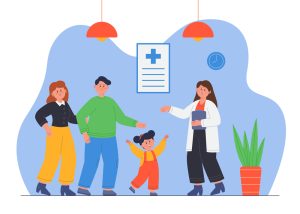Are you suffering from any knee joint pain in your early or late 20s itself? Knee pain in your 20s is commoner than you think!
The most important part is to carefully work out the reason behind knee pain. There may be several reasons to consider including injuries to the knee, sedentary lifestyles, fractures, bursitis, or tendinitis and soon. There may be numerous mechanical issues such as hip pain, dislocated knee caps and Iliotibial band syndromes among other ailments.
Biggest reasons for knee pain
Before moving onto knee pain treatments, here’s looking at some of the biggest reasons behind this issue:
- Squatting and Kneeling- Reports indicate that squatting and kneeling for more than 2-3 hours every day will lead to major disorders.
- Obesity– Patients who are suffering from obesity and metabolic disorders may end up changing the articular cartilage metabolism altogether. Obesity contributes to a majority of surgeries for knee replacement.
- Gender– Women usually have higher risks of osteoarthritis and pain in the knees which are at least double as compared to men. Women have more leptin concentration, making them vulnerable to these diseases.
- Strenuous Exercise– Working out strenuously more than two times a week is also linked to knee pain in some cases.
- Meniscal Surgery– Those going through partial meniscectomy or reconstruction-linked surgeries may have a greater likelihood of suffering from osteoarthritis and knee problems down the line.
- Deficiency in Vitamin D– Deficiencies in Vitamin D may lead to osteoporotic issues and joint pain along with bone issues.
- Pregnancy– There might be many myths going around about women’s health, but the claim that women with multiple pregnancies may also suffer from higher knee pain is a fact.
- Genetic reasons– Osteoarthritis and other bone problems may also result from genetic factors. This is another aspect worth looking into.
Knee pain treatment at home
While there are some knee pain remedies at home, you should undertake the same only after consulting your medical practitioner. Some basic solutions include engaging in exercises for strengthening, getting massages, emphasizing weight loss, following a healthier dietary regime, applying ice packs or compression techniques and choosing knee caps for higher support.
Knee pain relief- What you should do
You can go through painful knee joints treatment under the supervision of a doctor. If your knee pain does not improve even after several days of home remedies, you should get examined and treated by an orthopedic. The doctor may recommend X-rays and CT scans along with ultrasound and MRIs.
Based on the diagnosis, the next course of action will be planned likewise. The doctor will mostly prescribe medicines and create a lifestyle blueprint along with recommending physiotherapy in some cases. Complex cases may require surgeries and injections as well.
Some basic tips for you to follow
Evaluating risks that impact your joints, especially those that bear weight, may help in ultimately lowering issues related to disabilities and knee pain. Here are some things that you should keep in mind:
- Maintain healthy body weight- Maintain regular bodyweight for combating problems linked to circulation and also promoting the growth of bones and cartilage, thereby keeping knee problems away. A regular BMI (body mass index) will have a lower impact on the joints while lowering inflammation-related risks.
- Physical activity- Engaging in physical activities like aerobics, walking, fitness and strength training workouts will help in keeping your knees healthier and free from pain while ensuring greater flexibility simultaneously.
- Posture- Always practice a suitable posture since it helps in lowering the overall pressure that is put on the joints.
- Dietary Aspects- Consume more leafy vegetables along with fresh fruits such as berries since they contain antioxidants and can help in combating pain and inflammation greatly.
- Stay hydrated as much as possible in order to detoxify the blood while keeping the joints supple and healthier.
- Do not slouch while you are standing or sitting, since it may put a strain on your joints. Avoid this by all means.
- Try and quit smoking since it may lead to risks of inflammation and the body will require more time to heal from any injuries.
- Avoid sugary beverages and alcohol as much as possible.
If none of the provided treatments helps you with your knee pain, you should visit a specialist.


